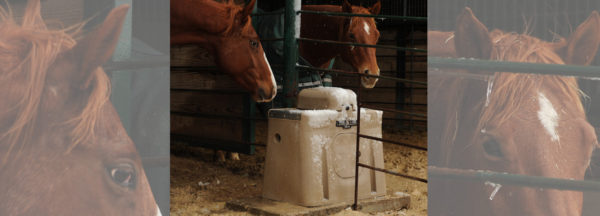Underlying Health Issues Can Impact Your Horse’s Water Consumption

By Ritchie Industries
Underlying health issues can impact your horse’s water consumption, with the most common issue being diarrhea. Monitoring manure will give you a head’s up on how much water is being lost. On the flip side, horses who have drier or less manure production are telling you that they are not drinking enough, and an intestinal blockage or impaction may occur. Acute diarrhea in your horse can be very serious and should be treated as an emergency by a veterinarian. Diarrhea that lasts more than two weeks is considered chronic and a veterinarian should be consulted.
Horses with Cushing’s disease, also known as Pituitary Pars Intermedia Dysfunction or PPID, will have an increased need for more water. Horses with chronic kidney disease will also drink more water than typical.
Don’t forget about the condition of your horse’s teeth. Diseased or sensitive teeth may lead to pain when drinking cold water which in turn leads to your horse avoiding the waterer – offer them warm water to entice them back to the waterer.
Good horse management means providing your horse with an ample supply of fresh, clean water at all times. Remember, horses will not break ice to drink. It is best practice to provide water at a temperature between 45 F and 65 F to encourage adequate water consumption. Monitor water consumption to reduce the risk of impaction colic, and if any problems arise, consult your veterinarian.
